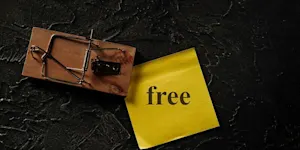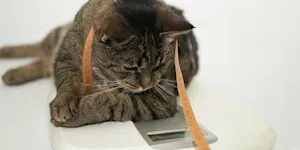What Makes This Word Tick
"Efface" is one of those humble yet powerful words that suggest an act of erasing or wiping out. It's not just about removing physical marks but can also refer to making something, or even oneself, less noticeable or prominent. Whether it's about a faded memory or a modest personality, "efface" brings a certain elegance to the idea of vanishing quietly.
If Efface Were a Person…
If "efface" walked into a party, you might not notice at first. Picture a person who blends seamlessly into the background, always ready to lend a hand but never one to hog the limelight. With a penchant for observing rather than participating, "efface" would likely have a wealth of stories to tell if prodded gently, all delivered with a quiet charm.
How This Word Has Changed Over Time
In its earlier uses, "efface" was mostly about obliterating things like inscriptions on stone or paper. Over time, it evolved in figurative uses, describing people who tend to lower their profiles or ideas that fade from collective memory. The underlying theme seems constant: the gentle art of making things disappear without a trace.
Old Sayings and Proverbs That Use Efface
While "efface" doesn't headline in too many old sayings, the concept closely aligns with ideas like "fading into the woodwork" or the wisdom of being "neither seen nor heard," which echoes the sentiment of keeping a low profile.
Surprising Facts About Efface
"Efface" might sound like a vocabulary challenge, but it's related to more familiar words like "erase" and "face." These linguistic cousins share a common Latin ancestor, "facies," meaning face or surface, giving "efface" a subtle nod to its origins in clearing surfaces or expressions.
Out and About With This Word
If you’ve ever marveled at how a coastline can seemingly vanish overnight due to erosion, you’ve witnessed nature’s power to efface. This word finds its place in describing how time, tides, and technology can quietly and gradually erase things from existence.
Pop Culture Moments Where Efface Was Used
You won't find "efface" topping the charts or trending on social media, but it's a darling of the understated indie film genre, often used to describe characters who undergo personal transformations, emerging as new selves by the end of the storyline.
The Word in Literature
"Efface" fits perfectly into the nuanced world of literature. Authors use it to describe characters who exist on the periphery or crucial moments when the past is deliberately wiped away. Whether in a classic like "The Great Gatsby" or a modern mystery, "efface" carries a subtle literary grace.
Moments in History with Efface
Think of those times in history when monumental shifts rendered previous practices obsolete, such as the industrial revolution effacing traditional craftsmanship. The spirit of "efface" can be found in the dust of transitions that changed societies forever.
This Word Around the World
In France, "effacer" holds a similar meaning, living up to its French origin with flair. Across languages, the concept of erasing or making something quietly disappear remains universally relatable, even if the exact translations vary.
Where Does It Come From?
"Efface" traces its roots back to the Latin word "effacere," which combines "ex" (out) and "facere" (to make or do). Over the centuries, it gently shaped itself in French before slipping into English, maintaining that elegant essence throughout its journey.
How People Misuse This Word
Some might think "efface" is just a fancy way of saying "erase," but its use is more nuanced, often involving more figurative applications. It’s less about cleaning a whiteboard and more about creating an air of subtle invisibility.
Words It’s Often Confused With
Erase: More commonly used for removing physical marks.
Fade: Suggests a gradual disappearance, more passive than deliberate.
Obliterate: Implies complete destruction, often with force.
Vanish: Connotes sudden disappearance, lacking the quiet elegance of efface.
Additional Synonyms and Antonyms
Synonyms for "efface" include obliterate, erase, and erase. On the flip side, antonyms like appear, reveal, and display paint the opposite picture of coming into view rather than retreating from it.
Want to Try It Out in a Sentence?
"The artist’s early work seemed to efface the boundaries of perception, making the objects appear to float off the canvas and into our reality."
















